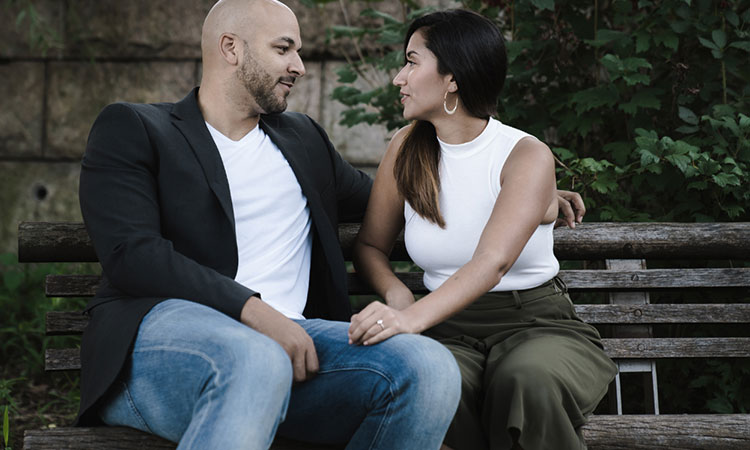

Today, most families are aware of either a close relative or distant one who has struggled with addiction. The opioid epidemic alone caused more demographics to be affected by addiction and heroin than ever before. Drug use is no longer a problem of income, education, or ethnicity. Many people were also victims of prescription drug overprescribing during the 1990s and 2000s, contributing to the increase in heroin addiction.
Still, the issue of alcoholism and other addictive drugs has been ongoing for decades and affects everyone. Unfortunately, when a family has a history of drug addiction, it is passed down as an environmental influencer or as the condoning of drug use. Addiction also causes severe denial for family members as no one wants to accept that their loved one is strung out or different.
The family context holds information about how SUDs develop, are maintained, and what can positively or negatively influence the treatment of the disorder. (NIH)
Can Families Make Addiction Worse?
Many families will isolate their loved ones by not understanding why they don’t stop using drugs if they are getting into trouble. In so doing, they only exacerbate the internal pain that exists. People who are addicted to drugs are attempting to self-medicate. We now know that one of the causes of addiction is abuse, neglect, trauma, and other experiences that often occur inside the home.
Many never get help because they feel alone and without support from the ones who may have hurt them in the first place. Still, many addicts do have the love and support of their families and still struggle. Addiction is very complex and requires expert help to be helped, but it is a treatable condition that can change for the better.
What is an Environmental Influence?
Environmental influencers are when someone’s living environment involves drug or alcohol use or condoning it. When the home environment includes drug use and addictive lifestyles, the person will undoubtedly connect to these influencers and find it less shocking or strange to see someone use cocaine, be drunk in the morning, etc.
Therefore, a person’s family may also not be ready to face their loved one’s addiction because the family members themselves are struggling. The family environment may also not include drugs and drinking but mental separation, control issues, and other painful emotional wreckage that prompt someone to use and like how drugs make them feel.
How To Help an Addict?
When someone is addicted to drugs, the first step is to offer them professional help at a substance-specific drug treatment program. The research indicates that someone will not give up drugs and alcohol for good without treatment. The National Institute on Drug abuse lists what is necessary from a treatment center for a person to overcome addiction:
There are many options that have been successful in treating drug addiction, including behavioral counseling, medication, evaluation and treatment for co-occurring mental health issues such as depression and anxiety, and a long-term follow-up program to prevent relapse. A range of care with a tailored treatment program and follow-up options can be crucial to success. Treatment should include both medical and mental health services as needed. Follow-up care may include community- or family-based recovery support systems. (NIDA)
Help For a Loved One to Overcome Addiction
Riverwalk Recovery Center provides instant access to our evidence-based treatment programs that are tailored to meet the needs of each of our patients. For example, we have found that all addicts and alcoholics require in-depth counseling and evidence-based forms of therapy to understand what is wrong and why they use drugs or drink. The other priority is to provide them with numerous emotional support sources and help them become more spiritual and other practical ways to comfort themselves while in treatment and after.
Riverwalk Recovery Center Has Personalized Treatment Programs For All Drug Addictions
We support our clients with empathy, family contact, and coping skills to prevent relapse. We also help clients navigate the emotional and physical challenges that can accompany the first steps on the path to recovery. We offer individual counseling, group therapy, and regular psychological assessments to help them mentally and emotionally. In addition, we have expert drug addiction treatment programs for the following addictions:
- Heroin
- Fentanyl
- Prescription Pain Killers
- Prescription Stimulants
- Cocaine
- Crack Cocaine
- Methamphetamine
- Benzodiazepines
- Alcohol
- Marijuana
- Ecstasy, Molly, LSD
- Over-the-counter medications that are addictive
